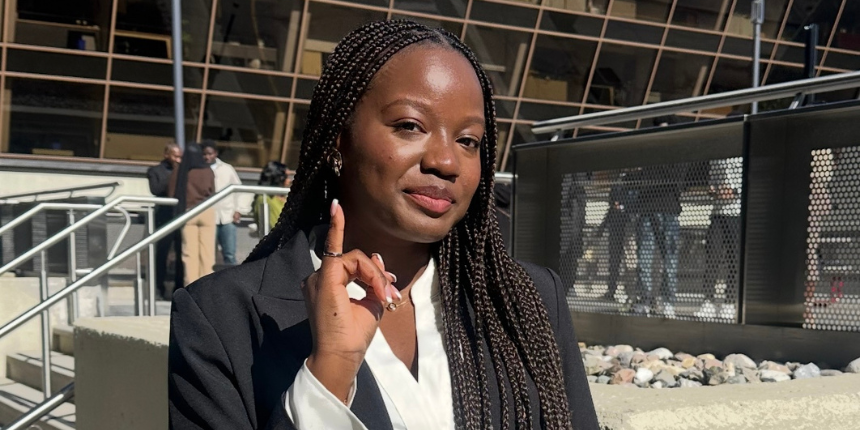
In this new series, Engineering Roots, Engineers Canada is digging into the personal stories behind why people chose engineering. Through first-person reflections, engineers, engineering students, educators, and leaders, will share the motivations and experiences that shape their path to the profession. First in the series is Moyin Wright, a recent graduate in Civil with an option in Engineering Management and Entrepreneurship at the University of Ottawa.

“ I knew in high school. I moved from Nigeria to Canada and enrolled in the International Baccalaureate (IB) program at a school in St. Catharines, Ontario. One particular assignment shaped everything for me. We were required to write a research paper about something that mattered to us. I immediately thought of home.
I chose to focus on a community where waterborne diseases, such as cholera, were prevalent and began exploring how design and innovation could help reduce their spread. That summer, I had the opportunity to go back to Nigeria and visit the community I was writing my paper about.
That’s when it really hit me. I saw how deeply the lack of proper and well-maintained infrastructure affects people’s lives, the decline of existing structures, and the extent of what was missing.
I interviewed health professionals and some of the residents. I listened to their stories, their challenges, their needs. One conversation in particular stood out to me. One of the residents shared the average number of people that were living in each house and the inconvenience caused by the lack of formal sanitation infrastructure.
That’s when it really hit me. I saw how deeply the lack of proper and well-maintained infrastructure affects people’s lives, the decline of existing structures, and the extent of what was missing.
It became clear to me that most environmental and public health challenges often arise from inadequate infrastructure, poor planning, and underdevelopment.
I had observed these things in some settings in the past, but something about that moment stayed with me. It made everything more real and gave me better understanding of the urgent need for infrastructure improvements.
That moment made me realize I didn’t want to just write about this; I wanted to make a difference. I aspired to be someone equipped with the tools to address such problems. I didn’t know how at first, but through my exploration, I discovered civil engineering and learned about the crucial role of civil engineers in addressing infrastructure challenges.
I studied Civil Engineering with an option in Engineering Management and Entrepreneurship at the University of Ottawa. I struggled in the first few years, especially throughout COVID and virtual classes. I wasn’t thriving the way I thought I would. There were times when I questioned my decision and thought, ‘maybe this isn’t the path for me. Maybe I made the wrong decision’.
So, I started being more intentional. Getting involved more, going to every event; I went to everything. I sought opportunities both within and outside the university that allowed me to learn more about the industry and to develop a broad skill set. I volunteered for research initiatives at the university and joined organizations such as Engineers Without Borders, where I eventually became a Chapter President. This decision to engage more with the community was integral to my journey and turning things around. It reminded me of the reason I decided to study engineering in the first place, motivating me to continue on my path.
I also relied on my faith and family. The unwavering support of my family and friends, and the community I built along the way.
I recently graduated and I’m grateful that I was able to finish successfully. I’m filled with a new sense of confidence, having believed in something and seeing it through to the end.
This decision to engage more with the community was integral to my journey and turning things around. It reminded me of the reason I decided to study engineering in the first place, motivating me to continue on my path.
Now, I work at the City of Ottawa as a Water Resources Summer Student, and I still hold onto that purpose. As I embark on my career journey, I want to be remembered as the type of engineer who always prioritizes people – In every meeting, every decision.
This especially includes underserved communities – People whose quality of life could be improved through access to better infrastructure.
The journey starts here. This is just the beginning.”


